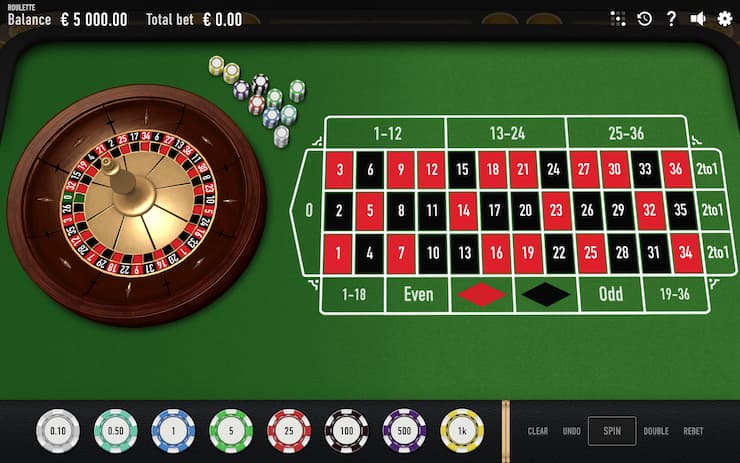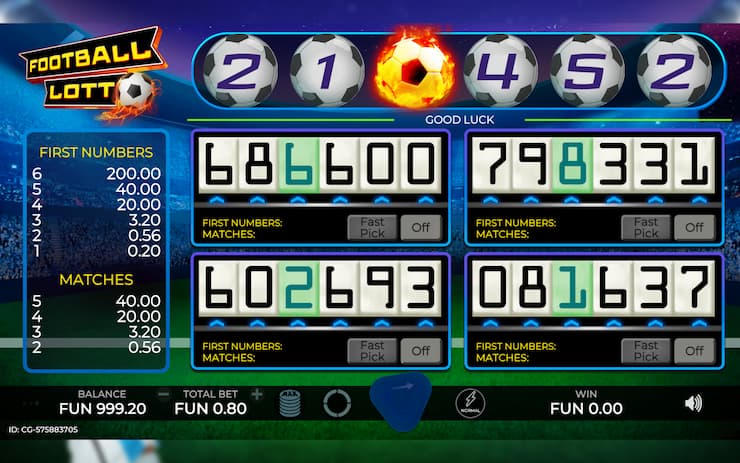Whether you’re playing online slots or at the roulette table, it’s important to recognize the gambler’s fallacy. This cognitive bias has been studied extensively and can result in frustration, disappointment, and big losses. By understanding it and knowing how to avoid it, you can lower its risks and have a more enjoyable gambling experience.
In simple terms, the gambler’s fallacy is the false belief that a certain outcome is expected in random situations. Although casino gambling usually relies on fair and random results, many players still believe they can win against the house by finding patterns or using strategies. Hundreds of studies have researched this phenomenon and most agree on the gambler’s fallacy definition. This is said to be a false belief that events that happened in the past will influence future events. Independent game test labs have proven, over and over again, that gambling games are fair and random, yet this type of representativeness heuristic is still prevalent among gamblers.Gambler’s Fallacy Definition
Gambler’s Fallacy Examples
The best way to understand this heuristic approach is through real-world examples. Below, we’ve outlined a few gambler’s fallacy examples to help you understand this attempt to explain independent events.
Fair Coin Flip
A fair coin is one that has equal chances of landing on heads or tails when flipped. An unfair coin would instead be more likely to land on one side rather than the other. This is usually the result of an imperfect coin that has an uneven weight distribution. In a coin-tossing session using a fair coin, each result is independent and is not influenced by previous results. However, the gambler’s fallacy leads many to believe that if the first three results are heads, the next one is likely to be tails.

Roulette Game
The roulette wheel attracts hundreds of players that fall for the gambler’s fallacy. Unlike other table games, such as blackjack or poker, where skill could influence the result, players playing roulette cannot change the house edge or the odds of the game. Every new spin is independent and can result in any of the 37 or 38 numbers on the wheel becoming the winner. Nevertheless, many new and seasoned gamblers use the Fibonacci sequence in roulette, the Martingale Strategy, or one of several other strategies to try and turn a profit in a systematic manner.
Pari-Mutuel
Playing lottery games and other forms of pari-mutuel gambling is another evident gambler’s fallacy example. In a 1994 study, for example, researchers found that players were more likely to avoid numbers that had recently appeared in lottery draws. The incorrect logic was that if these numbers won recently, they would unlikely win again so soon. Realistically, all lottery numbers have the same probability of winning in each draw, irrespective of whether they’ve been drawn in previous days.
Why is the Gambler’s Fallacy so Common?
The gambler’s fallacy is common among players as the human brain is designed to think that if a random event has happened, then it will probably happen less or more often in the future. This reasoning partly stems from the fact that our brain does not accept a random process. This fallacy, therefore, helps to rationalize independent events to make them more understandable and predictable.
A random event is just that, random. Learning about the Monte Carlo casino and similar situations, it’s clear that most people were not content with witnessing a highly random process. Instead, the majority found it unsettling and after about 10 rounds where the black won, many thought that logically, the red would soon win.
The Law of Averages
Whether directly or indirectly, the majority of the adult population is familiar with the law of averages. This mathematical law states that a particular event occurs, over a period of time, as often as it is probable. In practical terms, let’s consider a roulette ball on a European Roulette wheel that has a one in 37 chance of landing on any number. It follows that each number has a 1 in 37 chance of winning.
However, while the law of averages is not incorrect, it is oftentimes misunderstood. This law does not guarantee that the same outcome will take place over multiple sets of 37 rounds. You could watch 100 rounds of roulette and the ball might never land on the 0. For this law to prove itself, you’ll need to watch over 100,000 or more. Its accuracy gets better the more rounds are played, so one million rounds would likely prove this law better than 100,000 rounds.
A typical casino player would unlikely play 100 rounds of roulette, let alone 100,000 or one million. This means that he or she would never play the game enough times to get to a point where the law of averages is evident in the game. This concept is sometimes referred to as the law of small numbers and helps to explain why people reach conclusions when an event occurs without having sufficient proof to back them up.
Misunderstanding Chance
There is a widespread misconception of what chance means. Many people, especially gamblers, have this notion that unrelated events in the past, such as successive slot wins, are an indication of further wins. Others, however, might take this trend to signify an upcoming loss which is due. In either case, the gambler’s fallacy is believing that chance is somehow fair and that wins and losses even out over time.
Humans are susceptible to biases and incorrect perceptions, such as the gambler’s fallacy. It’s simply human nature to want to find reason and certainty, even when these elements are not available. Fortunately, you can avoid the gambler’s fallacy by doing the following:How to Avoid the Gambler’s Fallacy
Type I and Type II Gambler’s Fallacies
As researchers delve deeper into the causes of the gambler’s fallacy, they’ve split the motivations into two categories.
Type 1 Gambler’s Fallacy
This type of cognitive bias is essentially in line with the gambler’s fallacy definition which is based on past events influencing future outcomes. As humans, we’ve been taught to believe that the law of averages is a fact. However, this law is based on infinite coin tosses, roulette wheel spins, or lottery draws. It does not provide any guarantees that a number, or a win or a loss, is due.
Type 2 Gambler’s Fallacy
As researchers conducted additional studies, they recognized a different type of gambler’s fallacy example. Rather than believe that a future outcome would occur based on past events, some players believed that the gambling equipment, such as the roulette wheel, was biased. This type of fallacy is sometimes referred to as the Monte Carlo fallacy that’s based on an incident at a land-based casino in 1913. On this day, a roulette ball landed on black a total of 26 consecutive times. Players kept betting on black throughout the night and lost a lot of money because they believed that the wheel was biased.
The Hot-Hand Fallacy
Many players that fall for the gambler’s fallacy are also likely to believe in the hot hand fallacy. This mistaken belief convinces players that a win is likely to lead to another win and similarly, a loss is likely to lead to another loss. The hot hand fallacy is the reason why so many players believe in winning and losing streaks and use strategies, such as the Martingale System or the reverse Martingale System, to try and win the most and lose the least.
The hot-hand fallacy has sometimes been referred to as the reverse gambler’s fallacy. The former is considered to be a positive autocorrelation as those who believe in it expect the same outcome as has happened in the past. In contrast, the gambler’s fallacy is a negative autocorrelation since those who believe it oftentimes expect random events in the past will change future ones.
Action
Gambler’s Fallacy
Hot Hand Fallacy
Three coin tosses land on heads
Expects a tail to be due and likely to happen next
Expects the next toss to land on heads
Since most casino games have multiple variables, it’s common to find players exhibiting a mix of gambler’s and hot-hand fallacies. Moreover, while the gambler’s fallacy is mostly focused on specific outcomes, such as a coin landing on heads or tails, the hot hand fallacy is more a general belief that the player will win or lose.
The Meaning of Inverse Gambler’s Fallacy
Philosophers and mathematicians, including Ian Hacking, have also discussed the so-called inverse gambler’s fallacy. This fallacy leads people to believe that if an unlikely result, such as rolling a double six in Craps, happens, it’s a sign that the dice have already been rolled many times prior without such a rare result. This reverse fallacy is not as widely adopted as the original, yet it is held by numerous scientists and philosophers.
Learn More About Logical Fallacies
Logical fallacies, such as the gambler’s fallacy, are not just present in casino games but in a whole host of human activities. Human beings want to make sense of a world that oftentimes, makes little or no sense, and these fallacies bring reassurance, even if it is false. We’ve written several guides on fallacies across different industries, and below, you can view some of our most recent ones:
- Friends and Family Fallacy – Getting investment from those who are closest to you is no sign that your business idea shows true promise.
- Planning Fallacy – Beware of optimism bias when planning how much time you need to complete a project.
- Should-How Fallacy – Using content marketing to show what is a successful campaign rather than how to develop it fails to deliver what you set out to achieve.
Summary and Conclusion
The gambler’s fallacy is the incorrect belief that a random event may happen more or less frequently based on how often it has already happened in the past. However, it’s important to remember that this fallacy applies to events that are not linked or influenced by one another.
The majority of human beings want to rationalize a random event, even if this is not possible. This leads the brain to try and identify a pattern when a series of independent events occur. Using this pattern, the brain might then try to determine what is likely to happen, using the law of averages and any other knowledge that might help guide it. This process leads the person to believe that this reasoning is sound, such as in the most famous example of the gambler’s fallacy that took place at the Monte Carlo casino.
You should not feel ashamed if you’ve fallen for the fair coin fallacy, the Monte Carlo fallacy, or any other cognitive bias. Such gambler’s fallacy examples are so widespread because they are based on the imperfections of the human mind. Now that you understand this logical fallacy, you’re better equipped to avoid it and accept that in most forms of gambling, past events have no bearing on future outcomes.
FAQs About Gambler’s Fallacy
What is the gambler’s fallacy?
What are common gambler’s fallacy examples?
Is the gambler’s fallacy real?
Why do people believe the gambler’s fallacy?
Does the gambler’s fallacy contradict the laws of averages?
s the gambler’s fallacy a cognitive bias?


